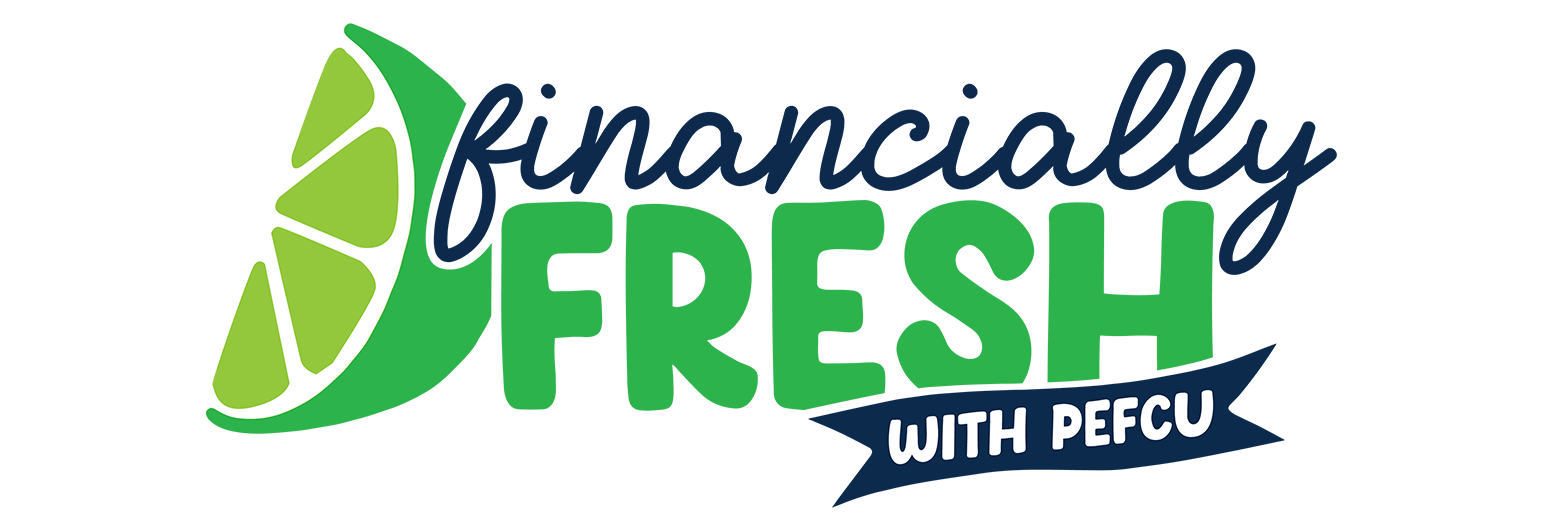August 1, 2022Smart Money Moves for Members Under 30
Life in your twenties can be exciting and full of new opportunities. There are many milestones you might check off your lists during this period: graduating college, starting your career, getting married, and even starting your family.
While long-term financial goals might seem a lifetime away, the decisions you make today can significantly impact your future fiscal success. When it comes to building wealth, time is your best friend. The sooner you begin laying the foundation for the future, the better your position will be when you approach your next financial milestone.
Here are several wise money moves you can make in your twenties to prepare for future financial events.
Track Your Expenses
Knowing where your money goes and identify your spending habits are two crucial skills to master early. Tracking and managing your spending will help alleviate stress and prepare you for unexpected expenses. As you age, your financial obligations will increase and become more complex. Having a family, for example, will increase your expenses in both the short-term (childcare, food, housing) and long-term (college savings).
The best way to build your savings is to create a budget and regularly monitor your expenses. You can download plenty of free apps to track your spending to get a better picture of your fiscal habits. Check out some of our recommendations: 4 Must-Try Personal Finance Apps.
Open a Roth IRA
While retirement may seem a lifetime away, your investments today could significantly impact your golden years. Whether your employer offers a retirement plan, you should consider a Roth IRA. This type of investment differs from the more commonly known Traditional IRA.
With a Traditional IRA, you can invest pre-tax dollars into the account now. Upon reaching 59 ½ years of age, the money withdrawn will be taxed according to the rates at that time. This type of IRA allows you to save on taxes now versus during retirement.
A Roth IRA operates the opposite. You invest after-tax money now, and your withdrawals during retirement will be tax-free. Two reasons young investors should consider a Roth IRA are:
- When beginning your career, your pay will likely be lower than later in life. Investing in a Roth IRA allows you to pay fewer taxes now and have tax-free retirement withdrawals.
- Tax rates today are relatively low. With increasing government debt, taxes will likely increase in the future. Paying lower taxes today saves you from paying higher taxes in retirement.
Save 15% of Your Income
You should aim to save between 10% to 15% of your take-home pay. While this may seem challenging initially, it’s much easier to get into this habit when you’re just starting out. If necessary, work your way up to 15% gradually. For example, create a budget that allows you to save 5% of your monthly income now. Once this becomes routine, revisit your budget and work towards 10%, and so on.
Automate Your Savings
One of the best ways to regularly grow your savings is to “set it and forget it.” With Payroll Distributions or Automatic Transfers, you can put your savings on autopilot. After a while, you may not even notice the money coming out of your paycheck anymore – but you’ll definitely notice your savings balance growing!
Open a Health Savings Account (HSA)
A Health Savings Account (HSA) allows you to save money in an account specifically for future medical expenses. As a young adult, you’re likely very healthy. So while you might not need this money now, you (or your future family) will eventually have medical expenses. The reason this type of account is popular among savers is the triple tax benefit it provides:
- Contributions made to your HSA are not subject to federal income taxes.
- Earnings realized on funds within your HSA are tax-free, allowing your funds to grow unburdened by taxes.
- Withdrawals are also tax-free if they are for eligible (medical) expenses.
Work with a Financial Advisor
When people hear the term financial advisor, they often think about retirement. But a financial advisor can help with all aspects of your financial plan – including short- and long-term goals. While many goals, such as buying a home or getting married, might be a ways off, preparing for these events now is wise. Creating a financial plan with an advisor while you’re young will give you more flexibility in preparing for all life’s upcoming milestones.
Build an Emergency Fund
Life is full of financial curveballs – from the unexpected car repair to the impromptu visit to the ER. Putting money aside for unplanned expenses will provide peace of mind and prevent you from seeking costly solutions, such as high-interest credit cards or payday loans.
When beginning to build your emergency fund, start with small deposits. Get into the habit of putting money aside regularly. As your balance grows, increase your savings rate. You should aim to set aside between three to six months of living expenses in your emergency fund. This might seem like a lot, but if you were to face a sudden job loss, it could hold you over until you find a new job. For more tips on building an emergency fund, read 5 Ways to Build Your Emergency Fund.
Focus on Career Advancement
When starting your career, stay on the lookout for opportunities to grow. Suppose your current position doesn’t offer room to advance long-term. In that case, you might want to find a job where you can grow and expand your financial opportunities. It’s easier to make these moves when you’re young and don’t have the responsibility of a family.
Also, use this time to invest in certifications or educational opportunities to boost your value to potential employers. The more credentials you have under your belt, the more sought after you’ll be, resulting in higher pay and job security.
We’re Here to Help!
While you may be unsure of what your future holds, taking extra steps now to ensure the security of your finances is the best financial move you can make. The earlier you start managing and saving money, the better off you’ll be later in life.
If you’re interested in opening an emergency fund account, we’re here to help. Please stop by our convenient branch locations or call 1-800-226-6673 to start today.
Each individual’s financial situation is unique, and readers are encouraged to contact PEFCU when seeking financial advice on the products and services discussed. This article is for educational purposes only; it does not constitute legal advice. If such advice or a legal opinion is required, please consult with competent local counsel.


